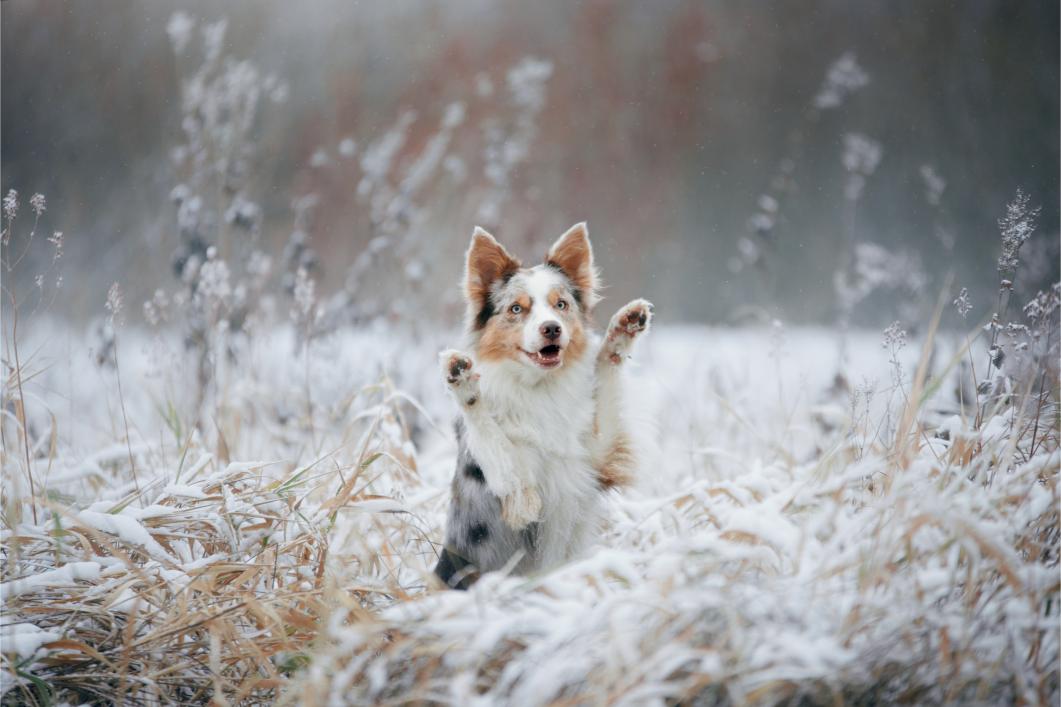Winter Pet Hazards: Keeping Pets Safe

Ark Animal Hospital and our Pennsylvania pet-owning families are no strangers to the winter. Living in a northern climate, it is likely you have some awareness of the unique challenges that the season can bring along with it. While the winter can be a little challenging for those of us that have animals, knowing about winter pet hazards can help us to weather the season a little better.
Cold Weather and Pets
When the temperatures dip, humans aren’t the only ones who get cold. Hypothermia in pets can occur when the body’s internal temperature drops due to exposure. Dogs and cats that are left outdoors in frigid temperatures can experience this, which results in damage to the internal organs, or even death.
Frostbite can also happen when the cold constricts blood vessels to the extremities. Without proper blood flow to places like ears, tail, and feet, the affected tissue can die.. Frostbite is very painful for pets who experience it.
Keep dogs and cats indoors as much as possible during the cold, never send a wet pet outside, and limit your pet’s outdoor time. If you have a pet that must stay outdoors, be sure that they have access to a warm shelter. Consider bringing them into the garage or other structure during the coldest of days. Be sure that they have access to unfrozen water at all times (and a few extra calories to eat).
Winter Toxin Concerns
While pets tend to be indoors more during inclement weather, there are a few winter-specific toxins to be aware of.
- Ice melting products: Chemicals intended to help melt ice and snow are used to help keep roads and walkways safe. These ice melt products can be hazardous to pets, however. They can definitely cause irritation on tender paws and skin. If ingested, many of these salt-based applications are very dangerous. They can cause gastrointestinal upset and lead to electrolyte imbalances. Even urea-based “pet-safe” versions can cause serious problems if ingested in high enough quantities. Don’t let your pet eat ice melting products and rinse paws and fur after dashing through the snow.
- Antifreeze: Even in small amounts, this cold-weather engine essential can cause lethal kidney failure. What makes it even more dangerous is the fact that it has a sweet taste that is tempting for unsuspecting pets. Often colored neon green, this chemical may leak under cars or spill in areas where motorized vehicles are maintained. Keep your pets out of these areas and wipe up spills promptly. Antifreeze and dogs (or cats) are a bad mix.
- Rodenticides: Products to control mice and rats tend to be utilized more in the winter months. Many ingestible bait traps are deadly to any animal who ingests them, and they are designed to be attractive and palatable to eat. Try to choose a safer option.
Other Winter Pet Hazards
There are definitely some other hazards to watch out for this winter season. Be careful of:
- Ice which can lead to slips, strains, and breaks
- Rough, frozen ground that can cut or irritate tender paws
- Warm car engines that may be an attractive place for chilly kitties to hide
- Dehydration (it is easy to forget to hydrate during activity when you are not too hot)
- Skin and paw irritation from the elements
- Forgetting your parasite prevention—cold weather is not a good reason to stop administering these!
Winter can be a magical time of the year, and we hope that you are able to enjoy it with your pets. Contact us with any questions or concerns that you might have, we are happy to help you keep your pets safe this season.
